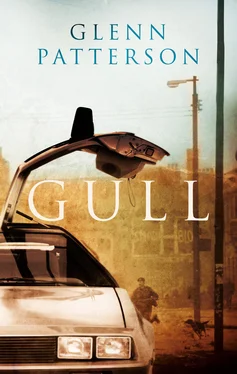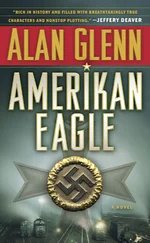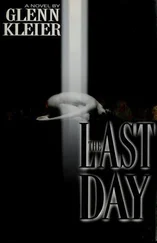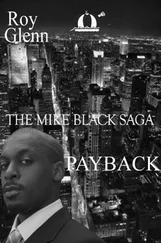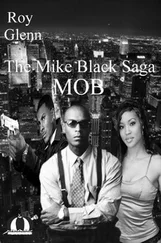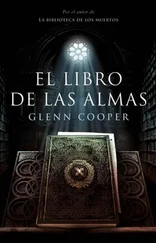Haddad pushed his glasses up on to his forehead and with the same three fingertips massaged the bridge of his nose. Has it come to this?
One of the union guys, taking his lead, threw his pen down on the table. ‘I object,’ he said.
‘And I am only trying to be rational. The worst thing we can do is to leave ourselves unprepared.’
‘Well…’ Anto broke the silence that ensued, ‘there’s the three boys who started in March… Hughes, McCreesh and O’Hara… And then there’s Joe McDonnell who went on’ — he cleared his throat of nothing — ‘who went on as soon as Bobby died, and presumably if any of the other three die there will be boys go on after them.’
Randall had been writing all this down. He stopped a second after Anto did. ‘Do you really think Thatcher will let it go that far?’
The guy who had thrown his pen down grunted; at least he was still in the room.
‘Nobody thought she would let it go this far,’ Anto said. ‘And I can’t see the hunger strikers backing down now. They’re inside. It’s like its own wee world, prison. Their loyalty is to each other before their families or even the IRA.’
The other men nodded.
Randall readied his pen again. ‘So, what are we saying… Four? Five?’
Anto shuddered. ‘It doesn’t bear thinking about.’
‘But we have to think about it.’
‘Maybe five, but after that… wiser heads would have to prevail, wouldn’t they?’
‘Let’s say six,’ Randall said. ‘Worst-case scenario. And if we were to allow half a day per funeral, all those who wanted to attend, that is…?’
The men looked at one another. Anto again spoke into their silence.
‘They’ll not all be in Belfast. Hughes and O’Hara are both Derry, McCreesh is South Armagh. The like of those I think we could keep down to a symbolic walkout — two minutes’ silence on the road in front of the gate sort of thing.’
Randall nodded. Finally they were getting somewhere. ‘I am sure we can work around that. Just one thing… You see that banner they’ve been carrying — the car smashing through the big H Block? Do you think they could lose that?’
For the first time since they had walked in the door the union men smiled. The guy who had thrown down his pen was slipping it now into his inside pocket. ‘What if they just kept it out of sight of the cameras?’
Haddad sat forward. ‘Point of order, that is a PR matter.’
‘Well what do you want them to do with the banner?’
He gathered up his things and headed for the boardroom door.
‘Bill,’ Randall called after him. ‘They’re waiting for an answer here.’
‘Keep them out of sight of the cameras, of course,’ he said angrily.
*
One of those who joined the strike after the first few deaths had been a member of the IRA gang (they would have preferred ‘unit’) that bombed the Conway Hotel. The car they were making their escape in had broken down before it was even out of the driveway. That was when, as the security guards at the Conway had told it to Randall, they burst into the off-duty police officer’s house, demanding the keys of his car. (What were the chances of that, indeed?) This particular guy had managed to get away when the shooting started, but only a few months later he was out again, right in the heart of downtown, on his way to plant a bomb, again, when who should appear but the cops — again — and give chase to the van he was driving. He ditched that and tried to hijack another car, but the engine at the crucial moment cut out on him.
It could happen to anyone with any car. Ask Johnny Carson.
On such small mechanical details did fortunes sometimes turn.
He died after seventy-three days without food. Twenty-five, he was.
A waste, whatever way you cut it.
The one thousandth car came down the assembly line in the second week of June. Men and women were kissing it before they passed it on to the next section. By the time it got to their end of the shop there were balloons attached to the wing mirrors, streamers hanging off the rear bumpers.
‘Didn’t we do well?’ said TC, an unconvincing Bruce Forsyth, barely even in the same language group, said Anto.
Like the nine-hundred-and-ninety-nine that had come down the line before it, the car, its streamers and balloons catching in the wind, was driven straight out of the assembly shop doors and into EVP. ‘Fine-tuning’ was the term used now, to minimise the work required when the cars were taken off the ships at the other end, because, despite the weeks of retraining, work ‘Stateside’ was still needed, although listening to some of the stories the men brought back from over there Liz didn’t wonder at it. The ones the women brought back were even more lurid. (They all of them, women and men, sported badges on their overalls, given to them by their American co-workers: Honorary POG. Look like a Pig Work like a Dog, it stood for. There were no letters for Party like a Wild Animal.) If you were to believe even the half of it they must only have gone into the workshop in the mornings for respite from the nights.
The fifteen hundredth car passed almost without comment. When it came through their section in fact Liz was on a comfort break. It was one of the Americanisms that she and Anto and TC had readily adopted, not to save them the embarrassment of admitting they sat on, or stood before, porcelain, voiding their bodies of waste, but because it better conveyed the amplitude of the ‘timeout’, incorporating as it often did a dander round the factory harvesting news and what passed in there for jokes (sample: what do you call a female chipmunk? A chipnun), a stop-off at the vending machines behind the chassis line, now and again a fag. (Liz’s official line — to herself — was that she didn’t smoke. Neither did the other two really. All the same every couple of weeks some one of the three of them would turn up with a box of ten, like they might with a box of Jaffa Cakes or a bag of Wine Gums: a wee change.) There were times when she didn’t even have to ask, when Anto and TC would look at her and seem to read the thought before it was fully formed in her mind.
‘Comfort break?’
‘Do you know, now that you mention it… But don’t one of you…?’
‘Nah, listen, go on ahead.’
‘Aye, do.’
‘All right then, I will.’
That was the sort they were. That was the sort the factory was: a happy worker was a productive worker, even if she wasn’t productive every last minute of the working day.
*
Randall wired the photo of the two-thousandth car off the line to New York. The workers had posed it themselves, out in the parking lot, cramming as many people as they could fit into the frame. Some of the ones higher up Randall had no idea what was supporting them unless it was sheer elation.
He received a call in the middle of that same afternoon.
‘Congratulations! I have the picture right here. Now there’s a sight to brighten a fellow’s morning.’
It sounded as though he was on speakerphone, at the limit almost of the device’s range. Randall had witnessed it many times, the way he conducted conversations, moving about the office, signing papers, reading unrelated files, communicating with Carole, Maur, Nesseth, Randall himself on occasion, by hand gesture or scribbled note or simply by holding down the secrecy button for tens of seconds at a time and talking over (or was that under?) whoever was talking to him.
He had carried on one very detailed set of negotiations with the Puerto Ricans while having his hair cut and his ears and nostrils trimmed.
‘When I am in New York I live in this office. How else am I going to find the time?’
Читать дальше
